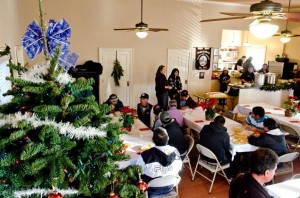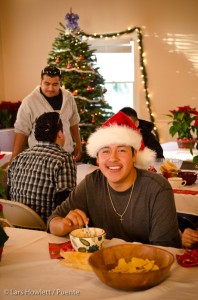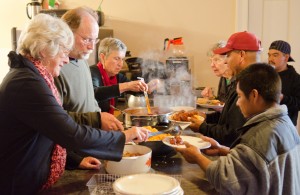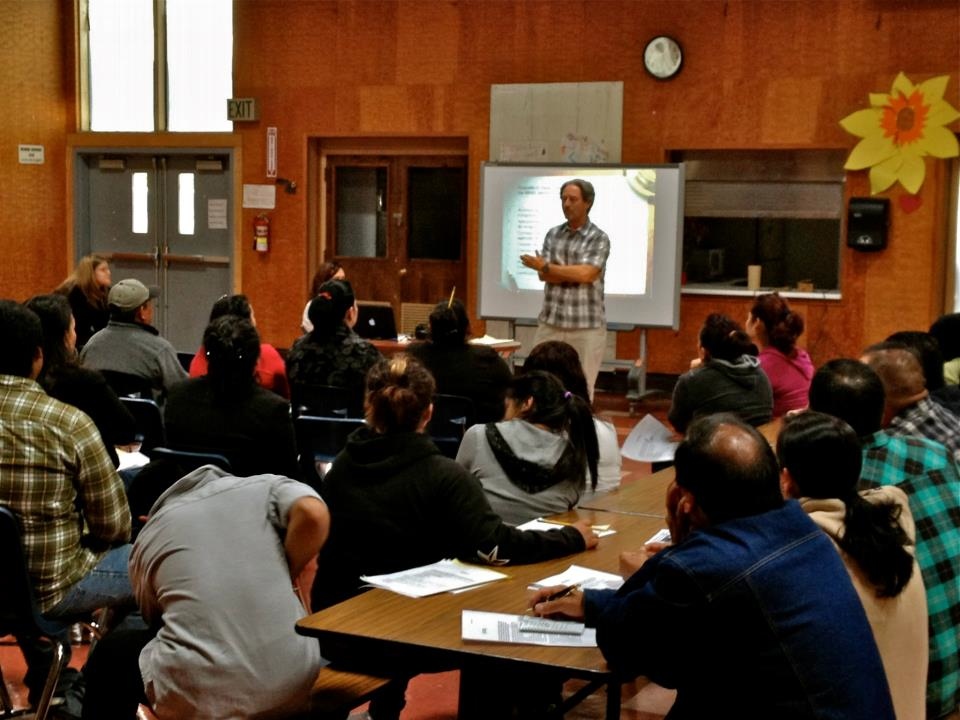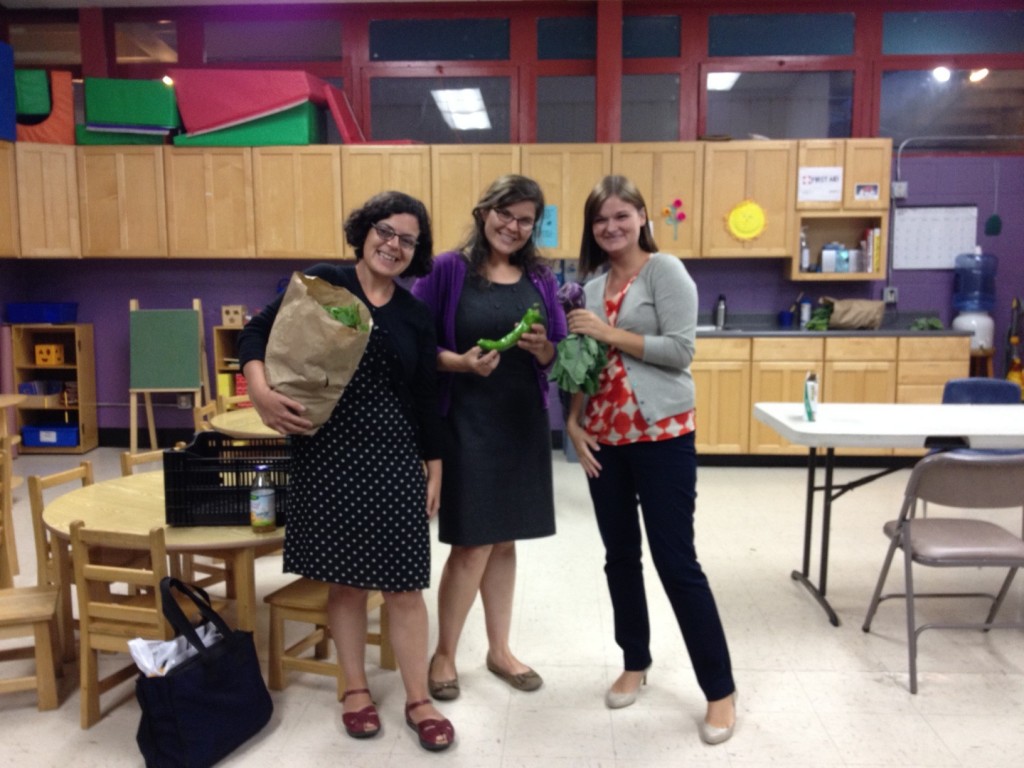For English teachers, teaching students the conditional tense – that is, how to express a hypothetical situation – can be a challenge. Puente’s staff members are grappling with their own hypothetical situation: “If immigration reform passes, how can we be ready for a lot of new English students?”
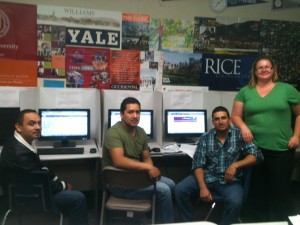
Learning Center Associate, Kassi Talbot, along with three Bachillerato students who started their on-line program (equivalent to High School).
The most powerful Congressional backers of an immigration reform bill have made it clear that anyone who might apply for a provisional residency permit, let alone a green card, would have to demonstrate a certain level of English language proficiency under the law.
But the level of proficiency required – whether an applicant would need to read, write and speak well enough to pass a test, or simply be enrolled in English classes – is still a matter of debate at the Congressional level.
Either way, Puente’s English Language programs – the only source of ESL classes anywhere between Half Moon Bay and Santa Cruz – would see a surge of interest. “All of these people are going to realize, ‘Oh my god, I need English to get on my pathway to citizenship.’ It’s a completely different motivation to learn English,” says Kassi Talbot, Puente’s Learning Center Associate in charge of the ESL program.
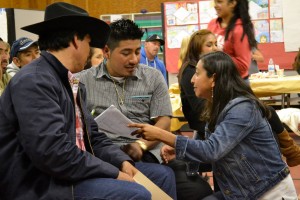
Puente program director, Rita Mancera, congratulates two ESL graduates.
Attendance at Puente’s Level 1 and Level 2 English classes already has grown since instructors shifted their teaching style to a comprehension-based approach, as opposed to the grammar-based style of learning favored by more traditional ESL schools. Students learn in Spanish and English, so they aren’t shy to speak in class.
That said, Talbot has a feeling that a proposed immigration bill would favor a more traditional approach, which Puente found far less effective with its population.
Puente has been discussing how to combine the two methods in the classroom in order to help students meet citizenship requirements.
Puente is part of an adult English language cohort, led by Silicon Valley Community Foundation (SVCF), which brings together peer organizations to strategize on the best ways to provide support to immigrant communities. Capacity and funding could also be an issue, says Talbot.
“I’ve heard there would be federal funding, but the way it trickles down it will not reach us in time. So we’re going to need to firm up a way to cope.”
Puente’s approach to education has the support of the community foundation, which has helped fund English language programs in San Mateo and Santa Clara counties as a strategy for immigrant integration. Lifelong English language acquisition is a worthy goal in and of itself, says Manuel Santamaria, Director of Grantmaking with the community foundation. “Research shows that if you’re reading and writing at an 8th grade level of English, your economic well-being increases along with a gain in educational opportunities.”
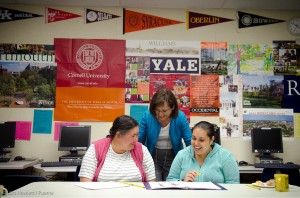
Stanford Professor Guadalupe Valdes and ESL students.
English students need to advance through different learning levels. But Santamaria says in California, earning those credits can be a lot more complicated than it would appear. Community colleges and adult schools both teach English, but they do so on parallel tracks and usually focus on slightly different populations. Currently, some don’t recognize transfer credits – a challenge the community foundation is working to address on a regional level, and one that would affect Puente as well.
“These systems are massive, but through the learning cohorts they’ve started to plan together,” says Santamaria.
Transportation is another issue. Cañada College offers a popular ESL class in Half Moon Bay thanks to a grant from the Workforce Investment Act, but many Pescadero residents don’t have the means of transportation to attend. Other schools are “over the hill” in San Mateo or Los Altos.
“Agricultural and rural communities on the coast need to benefit from what’s happening on this side of the Bay,” adds Santamaria, referring to the fact that language schools are more plentiful in urban areas.
Support from the Silicon Valley Community Foundation and the Zellerbach Foundation provide much needed funding to Puente in a time of growing demand for ESL classes.
Click here for Puente’s fall schedule of classes or contact Kassi Talbot at ktalbot@mypuente.org or (650)879-1691 ext.138.

